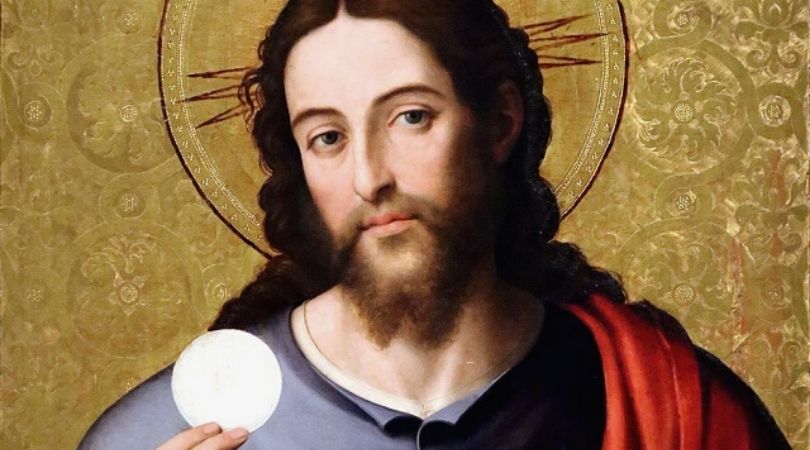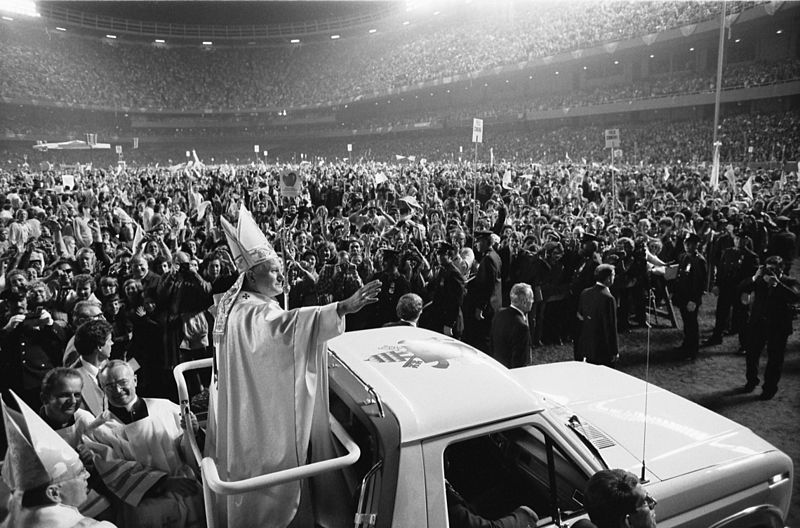You freeze. You look out the window for a distraction but nothing…
“Well…uh…that’s a great question…you see…”
How would you answer this without sending everyone to hell or without sounding like a Universalist? (the belief that, in the end, everyone is in heaven). How can we convey the truth without causing an unreasonable amount of anxiety?
While the Four Last Things will always remain in the realm of mystery, we can know something about them and we should be able to give the mind something to grasp it, even if small.
A good and sufficient way for young children (and most adults!) to understand these doctrines is the analogy of light and darkness. Heaven is blissful light and hell is eternal darkness. Death is entering into the realm of pure light or total darkness. Judgment, then, stands at the center. It is a conclusive point.
As parents, we have the task usually of waking our children up in the morning. We go into their rooms and flip on the lights. From the depths of slumber come the cries, “TURN IT OFF! TURN IT OFF!” In a very real way, your child prefers the darkness to the light. The light physically hurts them to the point that they would prefer to live in the darkness of their room. They do this not because they are evil, but because their eyes have adjusted over time to darkness. It is less painful to remain in the darkness. It is similar with the human soul. A life lived amending to darkness, as opposed to the light of Truth, Beauty, and Goodness, will prefer the darkness to the light in the end. To be clear, there is no “final choice” after death, but your life is your final choice. Every action and choice we make dispose us toward God or away from God.
St. Jerome wrote, “It would, be easier for the damned to bear the torments of hell than the presence of the Lord.” Our beliefs and actions dispose our souls to good and evil. Judgment, then, becomes the soul being sent to where it has been disposed. A life lived in the light of the Gospel becomes truly enlightened at the judgment and everything becomes clearer. St. John Chrysostom wrote, “A judgment, terrible to sinners, but desirable and sweet to the just.” A life lived separately from God has preferred the darkness to the light and so will spend eternity in hell. C.S. Lewis stated, “The gates of hell are locked from the inside.” The soul goes where it is disposed. It prefers this place. God respects our free will even to the point of our own damnation. He does not save us against our will.
The Good News, in fact, is that the light of God’s forgiveness has the ability to turn a life lived separated from God into a child of light through sincerity, repentance, and contrition. It has the ability to adjust the eyes so as to enjoy the light and shun the darkness. God can work miracles with faith even the size of a mustard seed. We should strive to live in the light and raise our children in the light of God’s love and truth. If we persevere in fidelity to God, judgment becomes the reward of race well ran, even if some purification is still needed.
It is important for Catholics to understand and explain these Four Last Things. Even though they are called the “Last” things, they should be first in the ordering of our lives. The scariest thing I can think of is for an entire people to not believe in heaven or hell. The existence of heaven and hell is not determined by my belief but my eternal salvation will be.
“Jesus said, “I am the Light of the world; he who follows Me will not walk in the darkness, but will have the Light of life.” – John 8:12
https://catholicstudiesacademy.com/heaven-or-hell-how-to-explain-death-and-judgement/







